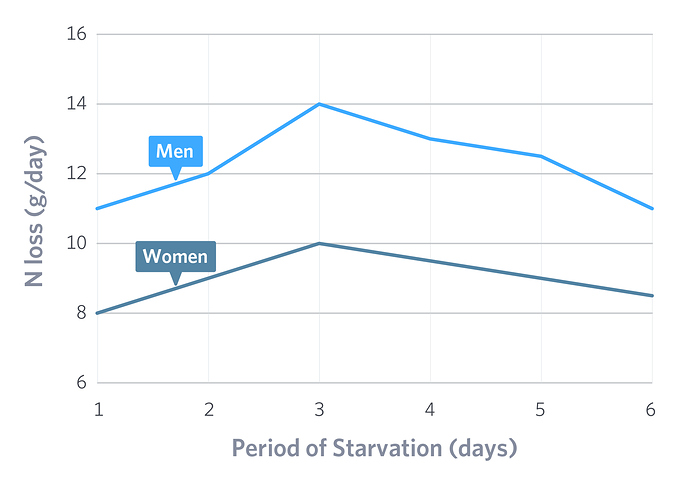I pay attention to my GKI while fasting. Sometimes I get below 2 in a couple of days, and sometimes it takes me 4 days, like what’s happening during this fast. My GKI this evening is 1.5. …after 4 days.
But of course BHB rises during the day, so I would expect my GKI ratio to be lower in the evening as I write this. I’ve bounced between LCHF and Keto ever since the early days of Atkins. …so a long time, and I’ve been doing periodic fasting for a few years now. The lowest blood glucose reading I’ve ever seen on myself was 41. I was asymptomatic for hypoglycemia which that reading might indicate which was fascinating to me.
But despite my diet as I’ve moved into my 50’s my overnight fasting blood glucose has risen. It’s still good, 70s and 80s, but much different then when I was in my 30s and 40s when I’d routinely see high 50s and low 60s.
It also seems to have changed during long-term fasting. I get a lot of variability with each long-term fast. My last long-term fast (7 days) by day 4 my morning blood glucose level were in the low 60s and my BHP levels were above 5.
I suspect the variability in my numbers has to do with variable cortisol levels, but that’s just spit-balling. It’s been a hectic week for me, I’ve been busy. During my last 7 day fast was a more relaxing time.
I wouldn’t sweat it. I track all my numbers because it’s fun for me, but I wouldn’t stress over it.





